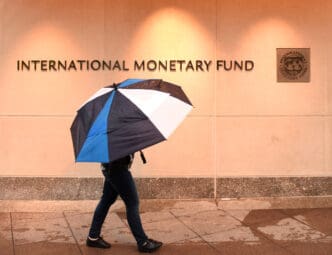Executive Summary
The Story So Far
Why This Matters
Who Thinks What?
The International Monetary Fund (IMF) has urged China to refocus its fiscal stimulus efforts towards boosting domestic consumption rather than industrial policy, despite the economy’s resilience in the face of U.S. tariffs. Krishna Srinivasan, Director of the IMF’s Asia and Pacific Department, stated on Thursday in Washington that China possesses the fiscal capacity for increased support, but emphasized the critical need to rebalance its growth model during the IMF and World Bank annual meetings. He also noted persistent deflationary pressures and high uncertainty within the Chinese economy.
Economic Outlook and Policy Shift
Srinivasan highlighted that China’s economy has remained robust, largely due to strong exports, which have helped mitigate the impact of elevated U.S. tariffs. However, he projected that growth is likely to moderate to 4.2% next year from 4.8% in 2025. This moderation underscores the urgency for a strategic shift in economic policy.
The IMF’s recommendation centers on pivoting China’s economic model from one heavily reliant on external demand to one driven by consumption-led growth. Srinivasan argued this rebalancing is crucial not only for China’s own economic stability but also for global economic health. This policy package is what the IMF is actively advocating for.
Addressing Structural Challenges
A primary concern is China’s ongoing real estate crisis, which has significantly dampened consumer confidence and household spending. Srinivasan stressed the importance of implementing comprehensive policies to durably resolve the housing crisis, thereby helping to invigorate consumption.
Beyond housing, the IMF official suggested that China should undertake extensive measures to strengthen its social safety net. He also identified the services sector as an area with substantial untapped potential, stating that greater emphasis on this sector could generate significant dividends for the nation.
IMF’s Recommendations
The International Monetary Fund’s assessment points to China’s need for a fundamental economic reorientation. While acknowledging the nation’s fiscal space for further stimulus, the IMF advocates for a strategic shift towards consumption-driven growth, underpinned by solutions to the real estate crisis, an enhanced social safety net, and a revitalized services sector.








